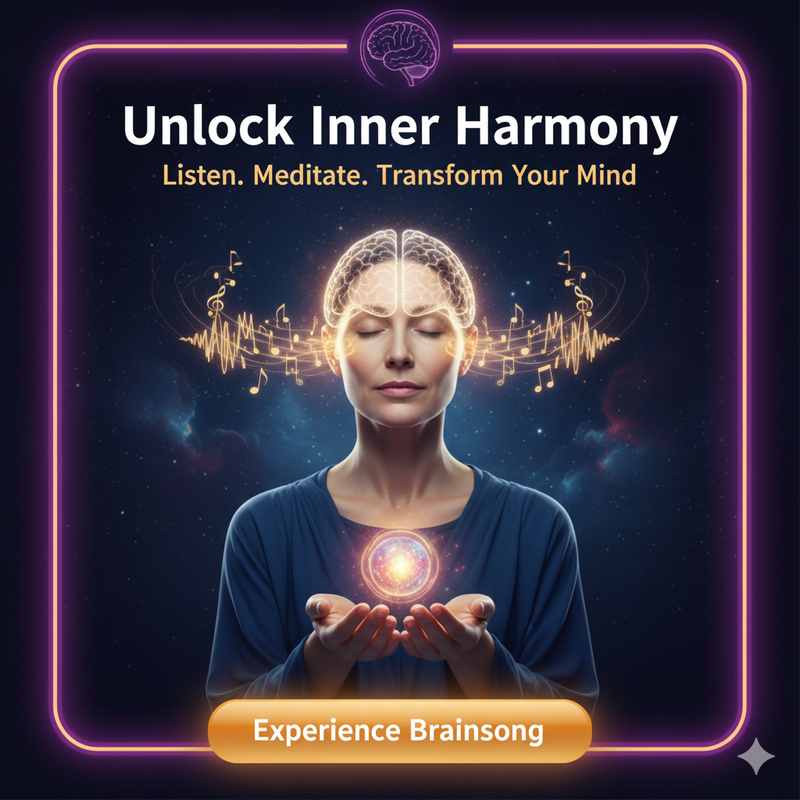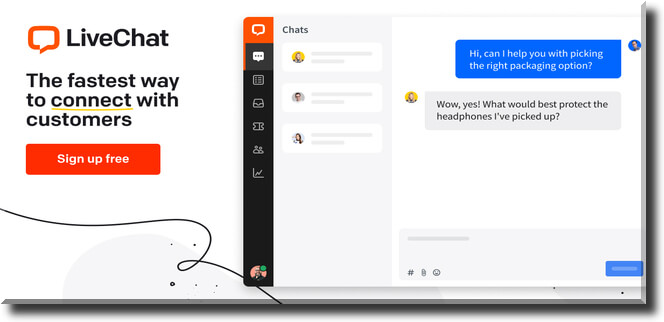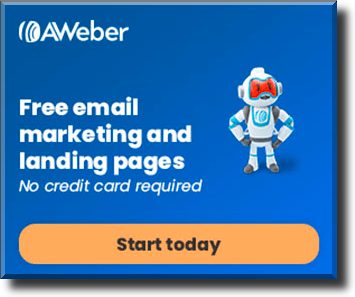
This post contains affiliate links, which means I may earn a commission if you make a purchase through these links, at no extra cost to you.
What Does the New Google Search Era Mean for SEO?
Google not only changes how it presents information to users and updates algorithms, but it also changes how users search. SEO best practices evolve year after year, so it's essential to stay current on adequately optimizing a website today.
Signs of Authenticity and Utility
Since April 2021, Google has released five Product Review Updates. The associated guidelines for writing product reviews published by Google recommend specific on-page factors that must exist in order for the page to be ranked for product review-related search queries.
Disclosure: This section features several affiliate links, meaning we'll earn a small commission if you purchase through these links.
This is a remarkable shift in how websites are ranked. Google has rewritten what it means for a webpage to be relevant to a search query. Relevance simply meant that a webpage had to be about what the user was looking for, in this case, product reviews.
Product reviews were commonly thought to be expressing an opinion about a product, comparing the product's features to the cost, and deciding whether something is worth purchasing or not.
However, simply reviewing a product on a website is no longer sufficient. It must also be genuine and practical. That represents a significant shift in how websites are ranked. Here are two new product review ranking factors introduced by Google in December 2021:
"...we are introducing two new best practices for product reviews, which will be implemented in a future update." To support your expertise and reinforce the authenticity of your review, include evidence such as visuals, audio, or other links from your own experience with the product. If it makes sense for your site, consider including links to multiple sellers to give the reader the option to purchase from their preferred merchant."
Google refers to them as "best practices," but it also says they will "take effect," implying that something in the algorithm is looking for these two qualities. The first signal concerns the veracity of the product review.
The second signal is unique to sites that do not sell the reviewed products, and it is about being useful to site visitors by providing them with multiple stores from which to purchase a product. The use of authenticity and usefulness as signals of relevance represents a significant shift in SEO.
>> KEYWORD SURFER Chrome Extension for Content and Keyword Research <<
Context is becoming increasingly important in search. The setting in which something is said or done provides meaning to those actions or settings. The context of a search can have an impact on the search results.
Google is redefining what it means to be relevant by understanding the user context. When a user searches for [pizza], Google displays local pizza restaurants rather than pizza recipes.
Google defines the meaning of the keyword phrase "pizza" based on the user's context, which includes the user's geographic location. Current events, which can change the meaning of a search phrase, are another context that influences search results. This is a component of the algorithm known as the Freshness algorithm. The Freshness algorithm considers time-based factors that can change the meaning of a search phrase, which influences which websites are displayed.
So those are the geographical and temporal contexts that influence what it means to be relevant for a search query. As previously stated, search is becoming increasingly focused on topics.
Google is also redefining relevance with the topic concept. When someone searches for [mustang], the most likely result is an automobile, right? Google lists several topics related to the Ford Mustang automobile in the screenshot above.
- Overview.
- Images.
- Available for purchase.
- Price. \sPerformance. \sEngine. \sCharging.
- News. \sReviews.
- Specs. \sConfigurations.
Clicking on any of the topics listed above yields a different search result. Because they are relevant to multiple topics, some of the top-ranked sites appear on multiple topics. Something to consider, right? Discover the secret of success of your competitors in SERP
Google's Danny Sullivan tweeted about a way to change the search results by topic back in 2018, which are the topic buttons we just discussed. Danny posted on Twitter:
"A new dynamic way to quickly change results, such as how you can toggle to quickly change about dog breeds, is on the way." This is made possible by the Topic Layer, which turns what the Knowledge Graph knows about people, places, and things into topics." Google posted a blog post about the changes, which were discussed in the section titled, Dynamic Organization of Search Results.
Google explained in the article that it organizes some searches by topics and subtopics. "Every search journey is unique, and it's not always clear what your next search should be to help you learn more, especially if you're unfamiliar with the topic."
As a result, we're introducing a new method of dynamically organizing search results to make it easier for you to decide what information to investigate next." People Also Ask (PAA) is a method for Google to assist users in finding the information they seek, particularly when the user searches with a broad keyword phrase such as CBD.
Topics are the queries listed in the PAA. People often refer to them as keyword phrases, but they are much more than that. They are topics for webpage:
The first topic, "Does CBD do anything?" leads to an article about whether CBD products work.
Some people and tools like to use every single suggestion box in the People Also Ask as a keyword for use in a single comprehensive article.
However, that approach overlooks the fact that each individual suggestion is a single topic for a single article.
Because Google prefers precise content, creating content for each topic is preferable to creating a giant page of content on multiple topics, as a giant page is not particularly precise.
Google's emphasis on topics remains. Google introduced new ways to craft search queries by topic on September 28, 2022.
We'll provide results as you type in the search box.
Takeaway: Google's Interest in Topics
Keywords are important because using the correct keyword phrases will help the content connect with users who search for answers or information using those keywords.
Advanced users use more jargon, while less advanced users with less knowledge use more general terms. Given that understanding, it's critical to remember that Google understands the world in terms of topics rather than keyword phrases. When Google looks at a page, it understands it at the level of "What is this page about?" "What is the subject?"
In my opinion, when the content author focuses on keywords, the content can appear unnatural. This occurs because a keyword-focused article tends to meander as the author writes.
Because the author is struggling to create sentences that include the keywords, keyword-focused content feels unnatural.
In my opinion, focusing on topics (along with usefulness!) is a better way to create content.
Topic Category And Relevance
Google may rank sites that belong to a category of sites for certain types of search queries. A 2015 patent, Re-ranking resources based on categorical quality, describes a method for ranking webpages based on whether the content's category matches the category implied by the search query.
This patent, I believe, is related to the August 2018 Google update known as the Medic Update. It was dubbed the Medic Update because it had a significant impact on the category of Health websites.
This patent represents a paradigm shift in how Google determines what is relevant for specific queries and discusses how it will re-rank search results based on whether a website belongs to a topic category.
Google's patent first distinguishes between two types of searches: informational and navigational. An informational search is one that can be answered by a variety of websites. As examples of informational searches, Google provides queries about football and space travel.
It goes on to say that navigational queries are when users search for a site's name, such as YouTube. The patent then gets to the point, which is a type of search query relevant to a category of information.
According to the patent:
"However, users may occasionally have a specific interest in a category of information for which there are a number of well-served resources." That is why the patent is titled "Re-ranking resources based on categorical quality," and it is stated in the abstract (the patent's description) that it is about "re-ranking resources for categorical queries."
The term "categorical" refers to something that falls into a specific category. This patent's simple description is that it will rank a search query and then apply a filter to the search results based on the categories that the search query belongs to. That is what the term "re-rank" refers to.
The process of ranking websites for a search query and then selecting the top results by re-ranking the results based on additional criteria is known as re-ranking.
The words "quality condition" and "resources" appear in the following patent passage. The "quality condition" in the context of this patent refers to the quality of belonging to a category.
A "resource" is simply a website. It begins by describing two different ranking scenarios. Remember that resources refer to a webpage, and the quality condition refers to the likelihood of belonging to a category.
The following is an important passage from the patent:
"The search system provides a set of search results that lists resources that belong to a category according to a quality ranking that differs from a search ranking of a received query by re-ranking search results for a proper subset of resources that satisfy a quality condition."
Following that, it explains the advantage of re-ranking search results based on "quality with respect to the category." "Because the search results are provided according to a ranking that is based, in part, on category quality, the search results are more likely to satisfy a user's informational need when the ranking is high."
Finally, I draw your attention to the Detailed Description section of the patent, which goes into greater detail. First, it is noted that when users are unfamiliar with a category, they will tend to use "broader" or more general phrases rather than the jargon that is typical for that category.
"...when a user knows very little about a category, queries are more likely to be broad."
This is due to the fact that a user may not have developed a thorough understanding of the category and may be unaware of the websites and resources that best serve the category."
Following that, the patent states that it will take a general query related to a category and match it to sites that fall into that category.
For example, if someone searches for stomach pain, Google may match that query to the category of medical websites and re-rank the top-ranked search results to only show websites in the medical category.
According to the patent:
"The systems and methods described below re-rank resources for a broad categorical query based on the quality of the resources in the category to which the categorical query corresponds."
The re-ranked search results are more likely to show the websites and resources that are best suited to the category." To be relevant means to fall into a specific category.
The point of that 2015 patent is that Google most likely changed what it means to be relevant. For medical queries, for example, Google ranks websites based on traditional ranking factors such as links and content.
However, Google re-ranks those search results by removing all sites that do not fall into the appropriate category for that search query.
This was a radical departure for Google in 2018, as it meant that alternative-health sites that used to rank for medical queries no longer did so.
Those websites did not fall under the medical category; rather, they fell under the alternative-health category.
According to Google, the 2018 update did not target health sites; it was simply more visible in that vertical.
This means that the change also applies to a wide range of other categories.
This means that the definition of relevance has shifted for some queries. It is not enough to have specific keywords in the content for specific verticals; the content must also fit into the appropriate category, which the patent defines as "quality with respect to the category."
Keywords And Exact Search Results
Google's search ranking algorithms have become more precise over time. Precision in search results took off in a big way following Google's Hummingbird update in 2013.
The Hummingbird update improved search precision by not using all of the keywords in a search query to match what was on a webpage. Instead, Google was ignoring some words, particularly in natural language searches, and focusing on what the query actually meant, then using that understanding to match the search query to a webpage.
When considering how to SEO a webpage, it is critical to consider precision. Matt Cutts, a Google engineer at the time, explained:
"Hummingbird is a complete rewrite of the core search algorithm."
To do a better job of matching users' queries with documents, especially for natural language queries, you know the queries get longer, have more words in them, and sometimes those words matter and sometimes they don't."
Cutts is quoted again in the preceding article, this time expanding on the concept of precision:
"...the idea behind Hummingbird is that if you do a query, it may be a natural language query, and you may include some words that you don't necessarily need...
...Some of those words aren't as important. Previously, Google would only match the words in the query. Now we can say which ones are actually more helpful and which ones aren't.
This was the beginning of Google's evolution into understanding topics and what users truly desired.
Most importantly, Google's emphasis on precision remains, as evidenced by increasingly sophisticated ranking technologies such as Google Lens, which can rank webpages based on users searching with images from their cell phones.
For example, a bug on the ground can be photographed and used to search.
User Intent Precision
Google's increasing use of user intent in search results is a change in search engines that began around 2012/2013.
Google did not make an announcement about the inclusion of user intent in search results. In addition, coverage of a June 2011 Q&A between Matt Cutts and Danny Sullivan in which Cutts discusses user intent went over the top of heads of those who are reporting it. Cutts discusses how Larry Page approached him and asked why the search results for [warm mangoes] weren't as good.
Cutts was curious about the user intent for that search and discovered some information about how warm mangoes ripen in a box. I was present during the Q&A and was astounded by Google's ambition to incorporate user intent into search results.
Despite the fact that Cutts mentioned the phrase "user intent," no one understood how the [warm mangoes] search fit into what he was talking about in 2011.
As a result, it was simply reported as an amusing anecdote about warm mangoes. After more than a decade, everyone is talking about user intent. However, there is a new understanding of intent that goes beyond the current one. It is the realization that user intent is more than just informational, transactional, and so on.
Those categories are actually quite broad, and there is a more nuanced way to understand user intent by studying the verbs used in search queries.
Dixon Jones of the site content optimization tools Inlinks explains their ground-breaking approach to determining user intent: "Keyword research is fundamentally altered by verbs."
My best practice recommendation is to abandon the concept of "User intent" as "Informational/Navigational/Transactional/Commercial or Local Intent." It is not entirely accurate to confine user intent to only four vague descriptions. When a user searches, their intent is far more nuanced than trying to do one of four things; it is more specific.
The analysis of verbs provides a much better description of user intent. The majority of keyword research data focuses on words or phrases rather than user intent, which can lead to fundamental errors.
For example, a horse website might conduct keyword research to discover search volumes for phrases such as "Mustang" or "Horse power," which are entirely different topics and concepts that may or may not be relevant to a website's topic. The key point is that without a verb in the search query, words generated through keyword research are not specifically relevant to what anyone searches for.
The verbs "ride" and "mustang" suggest a completely different meaning and audience than "drive" and "mustang." One of the concepts that we have been researching at InLinks.net is the use of verb analysis in keyword research.
When the entities and verbs in the user queries are checked for proximity to topics in your own content, NLP algorithms can help weed out irrelevant keyword suggestions."
Search Query Evolution
It's worth noting that Google's definition of search is constantly evolving. Searching used to entail typing words into a desktop or laptop computer.
Then it was a matter of speaking those questions into a mobile phone. It is now changing to include image searches via the Google Lens app. For instance, I needed more information about a bottle of wine I saw in the store. I photographed it and uploaded it to Google Lens, which returned search results for that wine.
What's notable about evolving search queries is that Google is driving the evolution by developing new search tools for users, such as Google Lens. Google announced nine new ways for users to conduct shopping searches on September 28, 2022.
It included:
"At our annual Search On event today, we announced nine new ways we're transforming the way you shop with Google, providing you with a more immersive, informed, and personalized shopping experience."
The Shopping Graph, our AI-enhanced model that now understands more than 35 billion product listings — up from 24 billion just last year — is powering this experience."
Then there's multi-search, which is a new way to search:
With multisearch, you can take a photo *and* ask a question to achieve the desired look or fix something. This new way of searching will be available in over 70 languages. You'll soon be able to add "near me" to your image. Each change in how users can search and how Google displays information represents an opportunity for businesses to claim a piece of the new ways of searching and being discovered.
The old way of ten blue lines is long gone, thanks to technological advancements.
Search is entering a new era. Are you current? Find powerful backlinks you can replicate easily!
Additional Resources:
Do you require effective SEO tools that are completely free? Check out our Search Engine Optimization tools for a plagiarism checker, backlink analysis, keyword position tracking, and over 170 awesome tools to make you money and save you valuable time. Share our page on your social media accounts and family and friends... they'll thank you for all of these incredible FREE tools and resources.
Discover Transformative Solutions Throughout Our Site and Propel Your Success!
"As you strive to reach your goals and make meaningful progress, having access to the right resources can be a game-changer. In today's fast-paced world, achieving success in various areas, whether it's weight loss, financial growth, or staying ahead in the crypto market, demands a strategic approach.
You've already taken the first step by seeking out valuable insights and information through this article. Now, imagine the possibilities that await when you delve deeper into proven solutions that align with your aspirations. There's a world of top-tier products and resources designed to support your journey towards success.
Explore the carefully curated selection of best-selling offers, each handpicked to cater to different aspects of personal growth and achievement. These offers have helped countless individuals transform their lives, and you can find them located in ads throughout this post and across our website. Embrace the opportunity to access the tools and knowledge that can propel you towards your desired outcomes.
If you've found our content valuable and would like to support our efforts in providing you with quality information, consider contributing through our donation button. Your support helps us continue to deliver valuable insights and recommendations to our community.
Remember, success is not a destination; it's a continuous journey of improvement and evolution. Equip yourself with the best tools available and forge ahead confidently towards the future you envision."
Sincerely,
The Free-SEO.org Team
































.png)


.jpg)

.png)